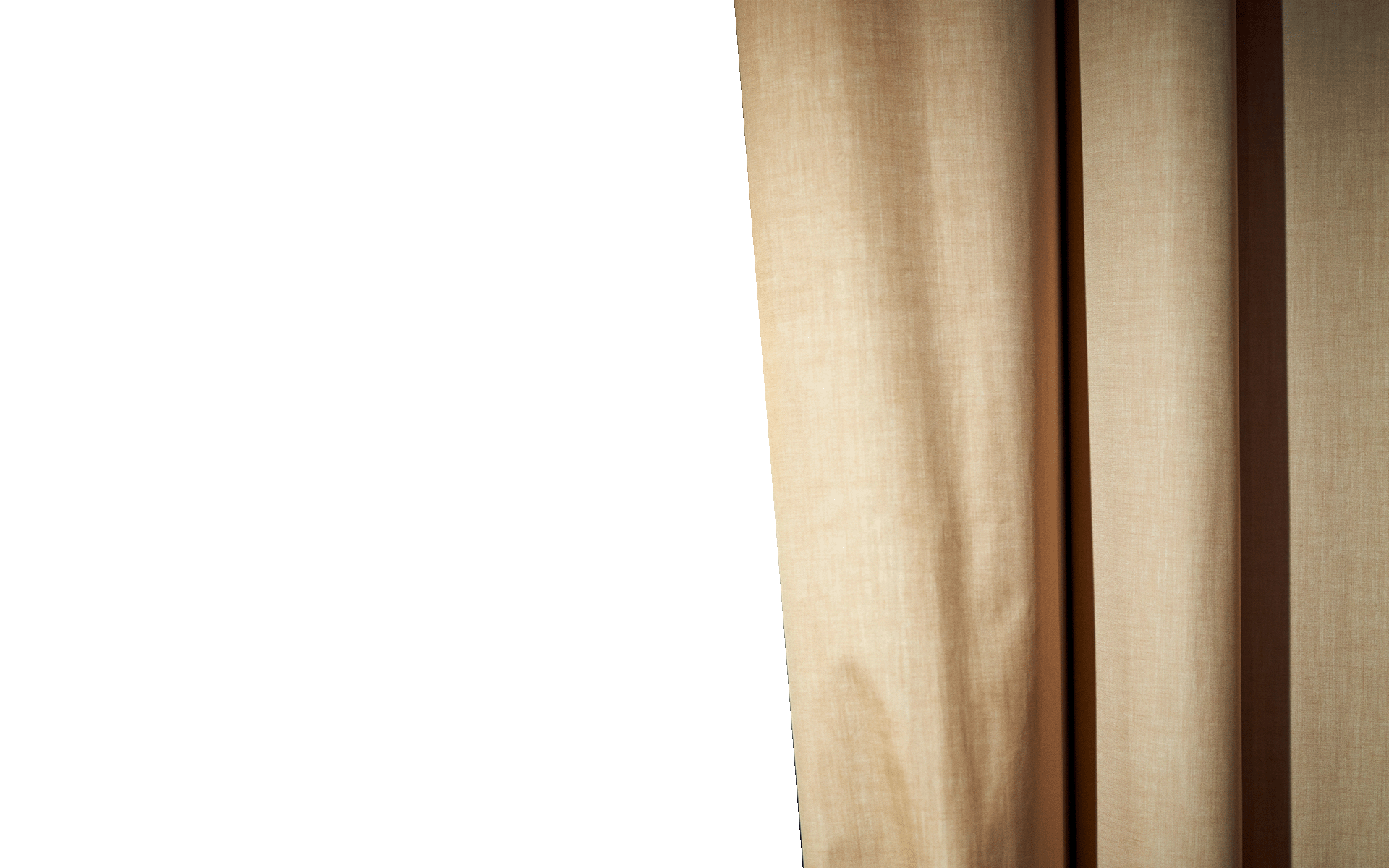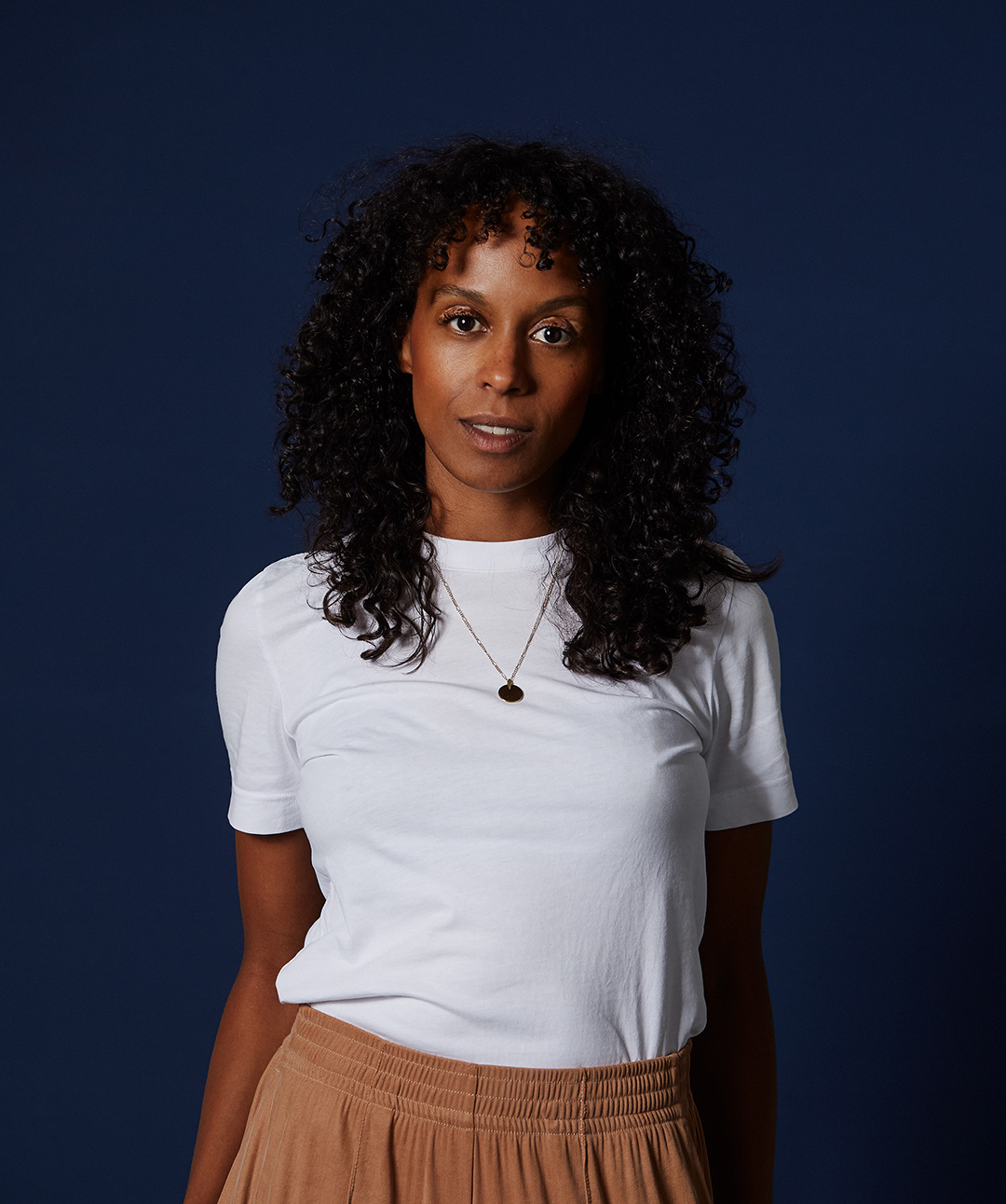
There is a sense of a new dawn in the air. Not only because we are finally able to encounter you in person again in the concert hall. We want the new to join with the venerable in other ways as well.
And so our RundfunkchorLounge has a new host: Boussa Thiam. We will introduce you to Boussa in an interview on the following pages. What she emphasises about hosting the lounge – accessibility, openness, creating an atmosphere of exchange – also applies to the Rundfunkchor Berlin and its artistic work as a whole.
We would like to focus on people, shared experience, and exchange: on and around the stage, in the classic concert hall and in the Heimathafen Neukölln, in our commitment to the coming generation in the profession and in our sing along concerts. We are seeking closeness to you, our audience, to everyone who wants to get to know us. We want to be just as approachable for our audience – for the residents of this city and for everyone interested in music – as the members of the choir are on these pages.
In that spirit we invite you to experience the new 2022/23 season with us. Let’s get together – and start a conversation. We’re looking forward to seeing you.
Yours,
Rachel-Sophia Dries
and Gijs Leenaars

Beginning with the 2022/23 season, the RundfunkchorLounge has a new host: Boussa Thiam. For more than twenty years she has been a host for various radio stations, from rbb to Deutschlandfunk Kultur. We spoke to her about the alpha and omega of hosting, about her commitment to sustainability, diversity and feminist themes – and of course about her expectations for the RundfunkchorLounge.
Boussa, you’ve conducted a lot of interviews over the course of your career: How do you get someone to reveal something personal?
To be honest, I always try to emphasise the subject matter, and not the person. But I have no problem with it when a personal question arises during an interview. Being a good host is above all about empathy and understanding, and so you do sense whether someone is prepared to talk about something. In general, it’s always important to me to experience something new and also to learn and develop in the process. As trivial as that might sound, it’s central.
What do you think makes for successful hosting?
It depends on the context, of course. In the RundfunkchorLounge, debate and critical journalistic questions are not really the focus. Here it’s more about opening up space, creating a charming and relaxed atmosphere, conducting interviews – and yet conveying the complexity of music in as approachable and accessible a way as possible: low thresholds but high standards! I see myself more as a communicator. And of course I also enjoy guiding people through such a celebratory, almost festive evening with great music.
You’re always advocating sustainability, diversity and feminism. Do you see points of contact there with hosting the lounge?
That always depends on the themes. Sometimes you can ask those sorts of questions, sometimes you can’t. I don’t want to force it. It’s also important to me not to be reduced to themes like diversity – and yet of course you have to create an awareness of variety in every respect.
In general, though, with classical music there is still a lot of room for improvement with regard to feminism and diversity, to put it diplomatically. How many famous female conductors can you think of? How many Black composers? There are a lot of gaps.
What are you looking forward to most about the RundfunkchorLounge? What themes are coming up?
To start with, »Coming to Berlin«: an evening about Berlin’s attractiveness to people from elsewhere, an evening about the culture of migration. As a Berliner, I’m looking forward to that especially. Then things turn philosophical in the second lounge when we address being alone. Being alone is not the same thing as loneliness, and I am eager to see how that can be realised musically. And, finally, »Bella Italia – La dolce vita« will focus on musical culture in Italy in a slightly different way. We won’t ignore uncomfortable subjects, such as the Mafia and its connections to Germany. That promises to be exciting!
Today is the presentation of the programme for the 2022/23 season. Starts off well: Dallapiccola’s «Il prigioniero» with the Berlin Philharmonic and Petrenko – great, political opera! Then Ethel Smyth’s «The Wreckers» – another political work, this time by a female composer who belonged to the British suffragette movement. Then the heart of the season from April on: ten dates with Verdi’s «Messa da Requiem», wow! The Verdi Requiem is part of the repertoire, but what awaits us next season is something else entirely: a staged production with the Staatsballett Berlin … the Requiem as a large-scale Dance of Death, so to speak. What will it be like to collaborate with choreographer Christian Spuck, who will be the artistic director of the Staatsballett beginning with the 2023/24 season? Apparently, he performed the piece in Zurich a few years ago. And now with us in Berlin – I’m curious!
Three nights in a row just now of Verdi’s Requiem with Barenboim in Philharmonic hall – intense, as always! I love that piece so unbelievably much … so powerful and emotional! Even if you hardly notice it in the concert hall: This piece was definitely always too large for a church – opera disguised as a requiem! But, hey, a staged performance is perfectly suited against precisely that background, right?
Sing-along concert yesterday – this time with Fauré’s Requiem. It was great! Couldn’t help but think of the time, years ago, when we did the Verdi Requiem with 1200 amateur singers. I will never forget how, after the first intimate movement, the tremendous «Dies irae» exploded into the calm with full force. It felt like the Philharmonic hall might collapse!
Just out of the garden. Now is the time for winterising the roses before it gets to cold for them. The cool autumn air that smells almost of winter – magnificent! I can’t imagine a better way to balance the concert routine. Today is the anniversary of the death of Verdi’s second wife, the opera singer Giuseppina Strepponi. Whenever we sing the Verdi Requiem, I’m struck by how organic the writing is. As a singer, you notice immediately that it never demands anything impossible of the voice. Is it because Verdi had noticed that Strepponi had ruined her voice early?
Yesterday I finally saw that documentary about the ballet production of Verdi’s Requiem in Zurich – incredibly succinct and yet poetic! My anticipation is increasing. I read today that the Archbishop of Milan only permitted female singers at the world premiere in 1874 if they wore veils and appeared behind a screen at the side of the room. Women were not allowed to sing in church in those days. Unimaginable! Yet the female voices are so crucial to the sound of this piece!
Rehearsals started today for the staged performance of the Verdi Requiem at the Deutsche Oper. Despite my familiarity with the piece, I was somewhat nervous. It’s so full on that stage! As far as the coronavirus is concerned, everything is long since «normal» again, but the years of the pandemic and the distancing rules are etched in my memory. Dancers have this very different physicality. I hope the performance makes it clear how incredibly enriching this additional level of expression is for the piece. And that the hidden relationships between the text and the music become literally graspable for the audience again.
Premiere of the Verdi Requiem yesterday – what an evening! Just as overwhelming and fantastic as I had imagined, the interplay with the dancers – incredibly inspiring! That will echo in me for a long time. So, now, off to the garden! The winter was much too long. Finally, spring, finally time to plant anew. And tomorrow, Verdi – looking forward to it!
I don’t know what it’s like for you, but for me death is above all a question mark. To be precise: the biggest one. I am planning an evening for June 2023 with the Rundfunkchor Berlin and the wonderful actress Eva Meckbach, in which we want to follow the trail of this eternal theme in text and music. When conceiving the programme, it was important to us to approach it with as open and unprejudiced a mind as possible and not to think theologically or liturgically. Because people are all too quick to pre-sent answers, almost as if they were certainties, and to push aside the questions, the uncertainty. Yet death is provocative precisely because it is certain for all of us, an endless series of questions that everyone answers differently. And that is really the fascinating part. I would like to ask you some of them on the following page.
Yours
Gijs Leenars

Bleiben Sie immer auf dem Laufenden mit aktuellen Terminen, Konzerteinblicken und Interviews